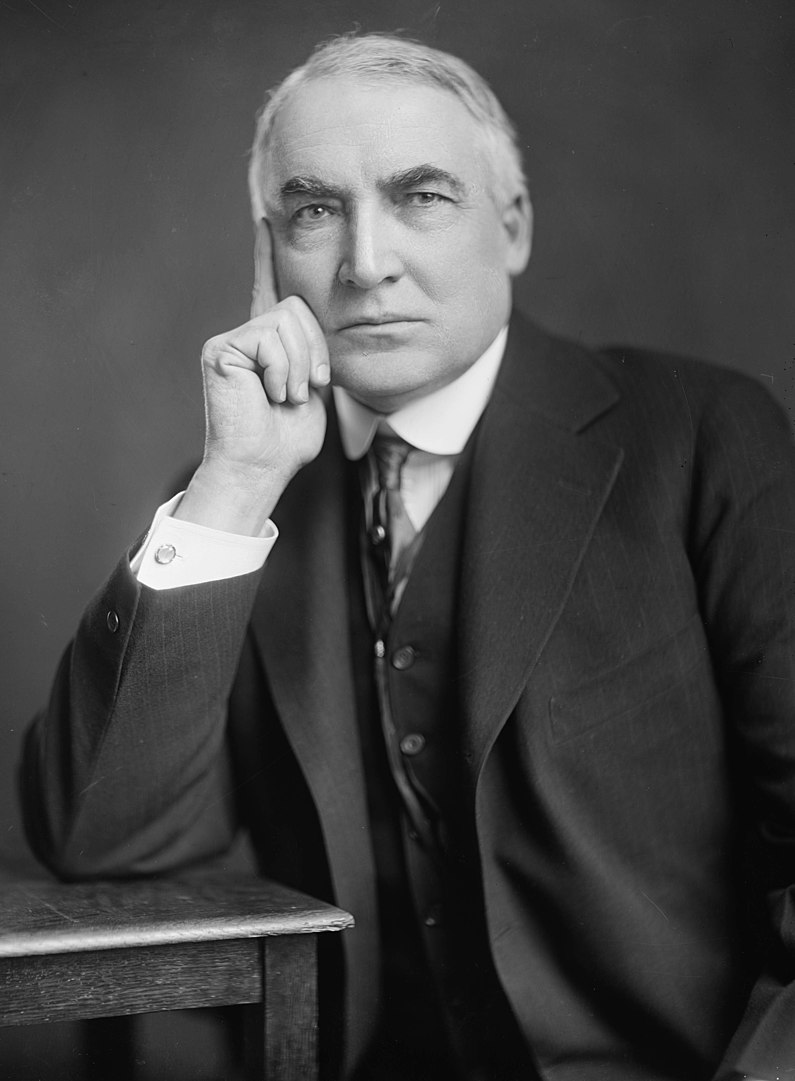In 1879, he studied at Iberia’s Ohio Central College. Although Warren G. Harding and his friends set up a newspaper in school, Iberia Spectator intended for the school and community. Since his father, Tryon, owned The Argus newspaper, Harding had foreknowledge of the newspaper establishment. Warren G. Harding joined the family in Marion, Ohio, after his graduation in 1882.
Warren Harding taught in a country school and sold insurance after graduation. In the same year, he and two friends bought the Marion Daily Star newspaper in Marion, Ohio. The paper suffered for a time under Warren Harding’s control but later prospered, thanks in part to Harding’s good-natured disposition and a strong sense of community. His 1891 marriage to Florence Kling de Wolfe, a wealthy divorcee with a keen business sense and plenty of cash, aided the paper’s success. Harding stopped writing derogatory articles about others and divided business profits with his staff.
He entered politics in 1898, at the behest of his wife. Warren Harding, a man of no real knowledge or creativity, was soon invited to serve on significant companies and fraternal organizations. He was drawn into Republican Party politics when he started associating with the state’s movers and shakers. He proved to be a king, as he was a handsome man who was always well dressed and groomed. His political popularity was mostly due to his physical presence rather than any internal attributes. He was elected to the Ohio legislature the next year and served two terms. Harding, a steadfast conservative Republican with a booming voice, favored city bosses, who helped him succeed in Ohio politics. He was elected lieutenant governor in 1903 and served for two years before returning to the newspaper industry.
Despite an unsuccessful run for governor in 1910, Harding won a hard-fought election to the United States Senate four years later. As a senator, Warren Harding was a strong supporter of corporate interests and a champion of tariff protection. He rejected Woodrow Wilson‘s “Fourteen Points” peace initiative and endorsed prohibition, as did other Republicans at the time. Despite his explicit beliefs on critical issues of the day, Harding seldom engaged in the legislative process. According to his congressional voting record, he missed two-thirds of the votes taken during his time in Congress, including the vote on women’s suffrage, which he strongly supported.
When the 1920 Republican National Convention went stagnant on a presidential nominee, party leaders turned to the handsome, genial Ohioan as a compromise candidate—allegedly in a smoke-filled room in Chicago’s Blackstone Hotel. Warren Harding, partnered with vice president Calvin Coolidge, forewent a speaking tour in favor of a “front porch” campaign, similar to another president from Ohio, William McKinley, twenty years earlier. He read carefully prepared speeches to visit delegations at his Marion home.
His unremarkable call for a period of stability was just what war-weary disillusioned voters needed to hear after eight years of President Woodrow Wilson’s administrations. Americans were forced to sacrifice significantly to reform the United States and aid the Allied cause in World War I. Harding won the election with the highest margin of victory in history, securing about sixty percent of the popular vote.
During the campaign, Warren Harding vowed to restore “normalcy” to the nation. Harding comfortably won the race, receiving 61 percent of the popular vote and winning 37 of the 48 states in the Electoral College; he was the first sitting senator to be elected president, using clichés in lofty speeches. Only the strongly Democratic southern states were carried by opponents James M. Cox and his running mate, Franklin D. Roosevelt.
He maintained his campaign promises and ensured that corporations and the wealthy earned tax breaks not to have to pay excessive taxes. He had sought to restrict immigration and control who could become a resident of the United States, and as the government had not been able to spend much during World War I, he repealed those laws so that the budget could be more generous. Despite his opposition to immigration, Harding was a strong supporter of African-American civil rights, which was not a common stance among Republicans at the time.
Warren Harding reportedly claimed that he felt exhausted by the presidency and had no idea what to do. As a result, he promoted several of his associates to positions in his cabinet or as top political advisers. Warren Harding died due to a heart attack while in office and was unable to complete his presidential term.
US Presidents | ||

